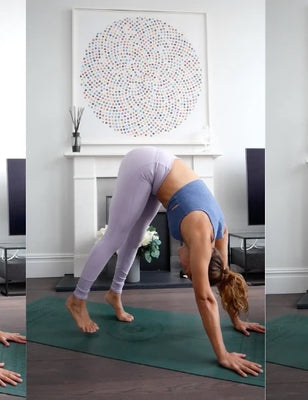
Chances are when you think of hypnosis, you imagine a showman dangling a clock in front of an audience member’s face and whispering some magical words.
However, this practice is more than a cheap trick entertainers use to amaze crowds. According to the American Institute of Health Care Professionals, hypnosis is ‘simply a consciousness state where your mind becomes receptive and open to suggestions’.
With hypnotherapy, trained professionals use hypnosis as a treatment for specific medical or psychological issues. Through this process, they can ‘identify your false beliefs with an intention of changing them so that you may move on in life’. The truth is that people have hypnotherapy for a treasure trove of reasons. You might see a specialist to help you quit smoking, kick another addiction, or get more sleep each night.
Within this guide, we will take a look at hypnosis and hypnotherapy as well as their benefits. Here’s everything you need to know about these practices and how you can get started now.

WHAT ARE THE BENEFITS OF HYPNOSIS?
Deciding whether hypnotherapy is right for you is a highly personal choice. However, it’s worth learning about the possible benefits of hypnosis and hypnotherapy before you do anything. While there is still more research needed in this area, we can take a look at some of the most interesting studies. With that in mind, let’s delve into some of the science-backed benefits of hypnosis and hypnotherapy.
Hypnosis for Addiction
Kicking the habit can be tough. Whether you’re a smoker, drinker, or have any other type of addiction, getting the help that you need is vital. While there are many options out there, one of the avenues you may want to walk is hypnosis. One study published in the Nicotine & Tobacco Research Journal found that hypnosis could improve the long-term quit rates of smokers. The study took place at the San Francisco Veterans Affairs Medical Center and participants used a combination of nicotine patches and hypnosis to support their journey.
Of course, when you’re struggling with addiction, it’s important to speak to a medical professional. The NHS online has a wealth of information on how to battle drug addiction, for example. The available treatment options include talking therapy, medicines, self-help, and detoxing. Getting the support that you need is crucial.

Hypnosis for Weight Loss
When you’re trying to get in shape, there are plenty of approaches you can take. The healthiest way to reach your goals is to balance regular physical exercise with a wholesome diet filled with fruit and vegetables. However, if you’re looking to supplement your efforts, it may be worth looking into hypnosis for weight loss. Over the years, there has been a growing trend of people using hypnotherapy to help them shed pounds. This tactic could help you if you find it hard to stick to your exercise targets or need help curbing binge-eating.
Research published by the American Psychological Association suggests that a combination of hypnosis and cognitive behavioural therapy (CBT) could help individuals to lose weight in a safe way. Interestingly enough, the study found that those who took part in these activities continued to slim down after the trial was over. Of course, before you undertake any form of hypnotherapy for weight loss, you should do your research. Speaking to a medical health professional is an excellent place to start and will give you the peace of mind you need.
Hypnosis for Sleep Disorders
Around 16 million British adults struggle with sleep problems, according to recent research from Aviva. While we all know that getting a proper night’s sleep is important, many of us fail to get the sleep that our body needs. Improving your sleep hygiene—by going to bed at the same time each night and allowing for a wind down period—is the easiest way to get started. However, if you have a sleep disorder, you will need to speak to your doctor and find out what your options are. Using hypnosis for sleep disorders is becoming increasingly popular.
There is scientific evidence to suggest that you can use hypnosis to battle sleep disorders. Research published in the National Library of Medicine suggests that hypnosis could be an effective way of treating insomnia and other sleep issues. Additionally, the research suggests that people may be able to use this approach when it comes to improving their mood and dealing mental health and struggles with such as anxiety. It’s important to note that more research is needed to fully understand the effects of using hypnotherapy for sleep disorders.

HOW TO GET STARTED WITH HYPNOTHERAPY
Do you want to give hypnotherapy a whirl? Before you get started, you might want to speak to your doctor and ensure that this is the right move for you. They will give you any advice you need and also help you determine what the first steps are. When you have done that, here are some of the resources you can use:
One of the easiest ways to get started with hypnotherapy is to find a hypnotherapist near you. The Hypnotherapy Directory has everything you need to do just that. Simply enter your location and whether you’d prefer phone or in-person therapy and the site does the rest
If you want an easy introduction to the world of hypnotherapy, you might want to use an app. There are plenty of options available. You can try Hypnobox, Harmony Hypnosis Meditation or Relax and Sleep Well Hypnosis. Why not try out a few and see what works for you?
It’s worth noting that people usually get hypnotherapy for a specific problem they are encountering. Ahead of looking into this approach, make sure you have identified the issue that you are hoping to change.
THE TAKEAWAY!
Hypnosis and hypnotherapy are research-backed holistic treatments. As the two methods have become more popular, there has been encouraging research into their benefits. Now that you have an overview of these approaches, it may be worth doing some more research to determine whether they are right for you.






























































